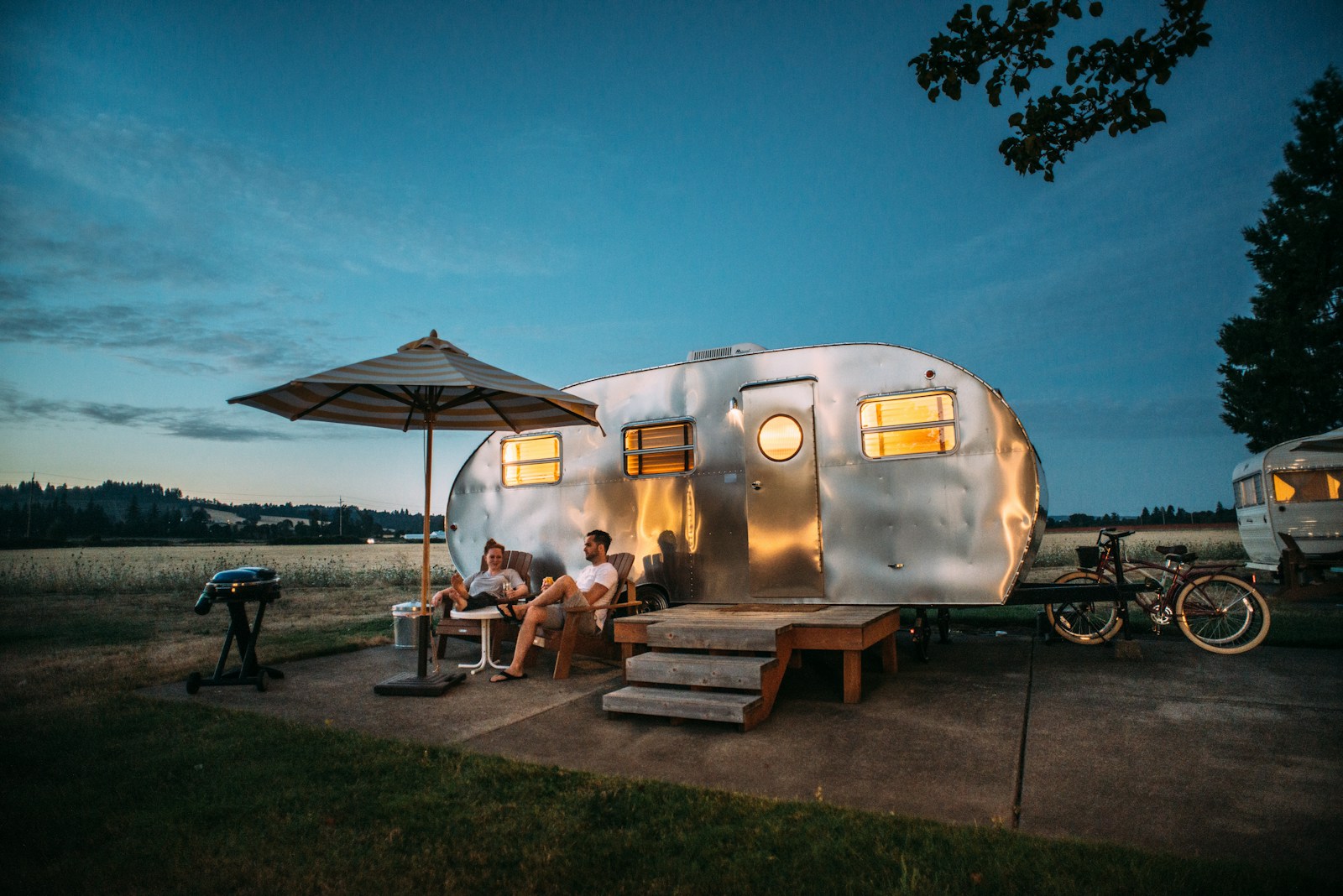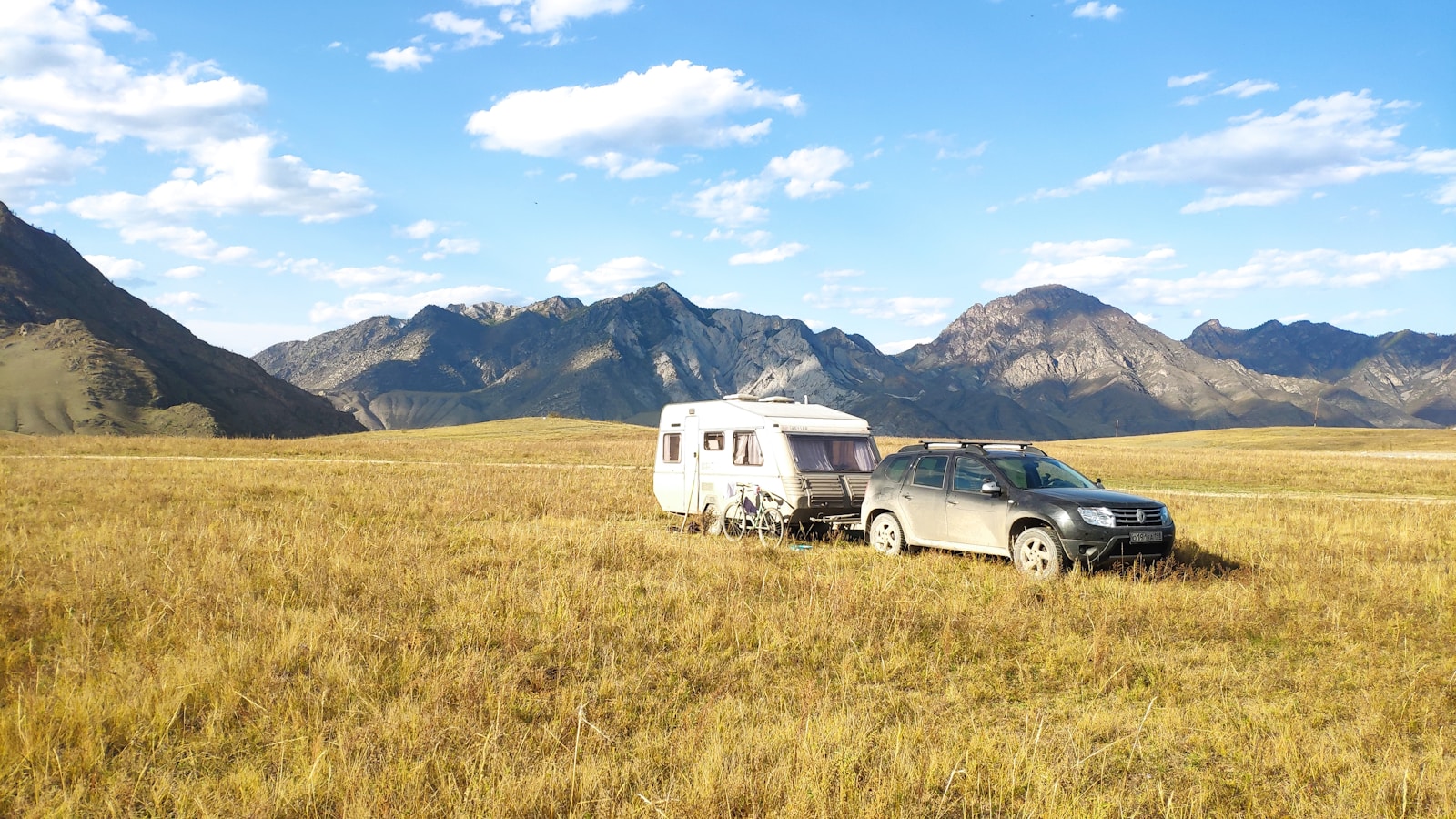Wondering where should I store my RV when not in use? The RV life is fun and exciting, and owning an RV comes with a great sense of freedom and adventure. However, as much as you love your RV, you won’t be using it all the time. For that reason, knowing where to store your RV when not in use is essential. But where should you keep your RV when you’re not using it? Should you store it in your driveway, garage, or at a storage facility? In this blog post, we will explore the different options and help everyone who is a RV owner.
Storing Your RV in Your Driveway or Garage:
One option is to store your RV in your driveway or garage. This option is particularly good if you have enough space to accommodate your RV. It’s also convenient, as you can easily access your RV whenever you want to use it. However, storing your RV in your driveway or garage can be restrictive as it takes up a lot of space. Furthermore, if you live in an area with heavy snowfall, you may need to clear the area around your garage or driveway to remove any snow that can damage your RV.
Storing Your RV at RV storage facilities:
Storing your RV at a storage facility is another great option. It offers better protection against theft, vandalism, and weather damage. Many storage facilities offer indoor and outdoor parking options, RV-specific storage spots, and 24/7 security. Moreover, when you’re ready to take your RV on the road again, you can pick it up from the storage facility and head out on your adventure. However, storing your RV at a storage facility means you will have to pay a rental fee, which can add up.
Storing Your RV at a Campground:
Some campgrounds offer storage options for RVs. Storing your RV at a campground can help you save money on storage fees, and you have the added benefit of being able to enjoy the on-site amenities of an rv park whenever you want. However, storing your RV at a campground may require you to make a reservation well in advance, and you may have to pay an annual fee.
Storing Your RV on Private Property:
Finally, you can store your RV on private property, such as a friend or family member’s property. This option can be ideal if you have no room at your own property and don’t want to pay for storage fees. However, make sure to check with the city or county zoning regulations before keeping your RV on private property. Moreover, storing your RV on someone else’s property can come with added responsibility and could cause a rift in your relationship if any damage occurs.

Is it OK to store your RV outside?
If you are a proud owner of an RV, it is natural to want to take good care of it. One of the things that many RV owners worry about is where to store their rig. Many people believe that storing their RV indoors is the best way to protect it from the elements. This, however, may not be possible for everyone due to various factors such as lack of space and budget constraints. So, the question arises – is it OK to store your RV outside?
The effects of elements on your RV
If you choose to store your RV outside, you need to be aware of the potential damage that can occur due to the elements. Exposure to extreme temperatures, wind, rain, snow, and sunlight can cause damage to the exterior of your RV. The paint may fade, and the sealants may crack, leading to water leaks. However, by taking proper precautions, you can minimize the potential damage. Your RV cover may help protect it from the elements, and you can use tire covers to protect your wheels from the sun.
Security concerns
Another factor to consider while storing your RV outside is security. RVs are expensive, and they are attractive targets for thieves. When stored outside, they are visible and may attract unwanted attention, making them more vulnerable to theft. However, you can take measures to enhance the security of your RV. Installing security cameras, using locking mechanisms, and parking it in well-lit areas can help deter thieves.
Cost implications
Storing your RV outside can be a cost-effective option. Indoor storage can be more expensive, and it may not be feasible for everyone due to space limitations. Outdoor storage options such as RV parks, storage lots, and backyards can be more affordable, and some even offer amenities such as electricity, water, and sewer connections.
Maintenance and upkeep
When you store your RV outside, you need to be more diligent with maintenance and upkeep. You may need to wash and wax it more frequently to protect it from the elements and prevent oxidation. You should also inspect it regularly for signs of wear and tear, such as cracks in the sealants or water damage. When you store your RV outside, you need to take extra care to ensure that it is ready for your next adventure.
Personal preference
In the end, the decision of whether to store your RV inside or outside is a personal preference. If you have the means to store it indoors, it may be the best option. However, if you need to store it outside, you can take steps to protect it and keep it in good condition. Ultimately, it all comes down to what works best for you and your RV.
Storing your RV outside is a viable option, though it comes with some risks and challenges. If you decide to store your RV outside, it’s important to take the necessary steps to protect it from the elements and enhance its security. Outdoor storage can also be more cost-effective and offer more flexibility in terms of options. It’s essential to stay on top of maintenance and upkeep to ensure that your RV is always ready for your next adventure. So, the next time you contemplate storing your RV outside, weigh the pros and cons and make an informed decision.

To Slide Out or Not to Slide Out: The Debate on RV Storage
Storing your RV is an important decision, especially when it comes to the slide out. Should you leave it in or take it out? There are arguments for both options, and it can be hard to know which to choose. In this blog post, we will dive into the pros and cons of storing your RV with the slide out in or out, helping you make an informed decision.
Slide Out In:
One benefit of leaving your slide out in is that it can help protect the slide-out mechanism from weather and dust. Rainwater and snow can accumulate on the roof of your RV and seep into the slide out when it is extended, which could damage the mechanism over time. Additionally, storing your RV with the slide out in can provide more security against theft if you are leaving your RV in a storage lot or campground.
Slide Out Out:
When it comes to storing your RV with the slide out, the biggest advantage is space. Removing the slide out covered storage also frees up additional space within the RV, which is a valuable commodity when storing your RV. Additionally, leaving the slide out can allow for better airflow, which can help combat moisture buildup that could lead to mold and mildew.
Both:
Ultimately, the decision on whether to store your RV with the slide out in or out may come down to personal preference and the space available. Some RVers choose to store their RV with the slide out in during the winter to protect against harsh weather and freezing temperatures, but take it out for summer trips when they want more living space. Others may choose to always store their RV with the slide out out to maximize the living space available.
Considerations:
Whether you choose to store your RV with the slide out in or out, there are some additional considerations to keep in mind. For example, you should always make sure the space you are storing your RV in is level to avoid potential damage to the slide-out mechanism. Additionally, it is important to keep the slide-out mechanism and seals clean and lubricated to avoid damage and maintain functionality.
In the end, the decision on whether to store your RV with the slide out in or out may come down to personal preference, storage space and available space. Both options have their advantages and considerations, so be sure to weigh them carefully when making your decision. Ultimately, the most important thing is to properly maintain and care for your RV to ensure it is always ready for your next adventure.

Interstate Haulers
In conclusion, Interstate Haulers can be a great choice for those looking to have their RV’s moved safely to or from any storage destination. Our team of professionals has the knowledge and expertise necessary to handle even the most difficult moves. We guarantee satisfaction and will provide superior customer service every step of the way. When you need your RV transported quickly and safely to storage place in a reliable manner – look no further than Interstate Haulers. Give us a call today so we can get you on the road tomorrow!
Conclusion:
While you can store your RV in various locations, selecting the right storage option can save you money and stress in the long run. Whether it’s a storage facility or a campground, make sure the location offers adequate protection for your RV. It’s also critical to consider the cost, convenience, and proximity of the storage option to your home. By making an informed decision, you can keep your RV in excellent condition and always be ready to hit the road.




